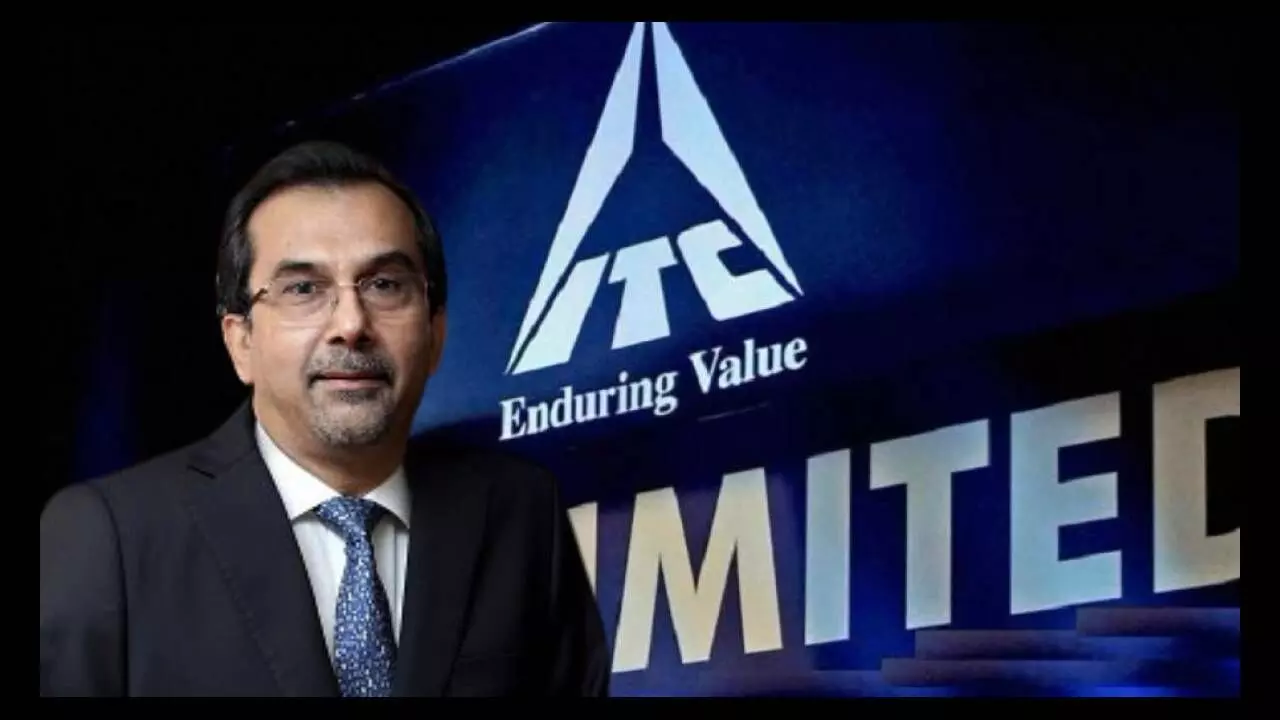Digitization, Renewables, and Industry Innovation Can Drive India’s Future
Sanjiv Puri, President, CII and Chairman and Managing Director, ITC Ltd Addressing at CII Western Region Annual Regional Meeting focused on ‘India@100 – Unlocking Potential Transforming Lives.’ Said, “India’s strengths lie in its large market, vibrant democracy, and vast arable land, but challenges like low agricultural productivity and extreme weather threaten growth
image for illustrative purpose

Mumbai, Mar 27: Sanjiv Puri, President, CII and Chairman and Managing Director, ITC Ltd Addressing at CII Western Region Annual Regional Meeting focused on ‘India@100 – Unlocking Potential Transforming Lives.’ Said, “India’s strengths lie in its large market, vibrant democracy, and vast arable land, but challenges like low agricultural productivity and extreme weather threaten growth. While industry innovation lags, there’s potential for progress through better collaboration between academia and industry. Additionally, the skilling system needs alignment with industry needs, requiring localized solutions to bridge gaps.”
It was held in Mumbai on March 26.
He added that to drive growth, India must reform agriculture with digitization and farmer collectives, while transitioning to cleaner energy solutions. A balanced approach to coal phase-out, carbon capture, and renewable energy is key. By fostering innovation, addressing climate impacts, and investing in technology, India can unlock its full potential and ensure sustainable future growth.
Jamshyd N Godrej, Past President, CII & Managing Director, Godrej & Boyce Manufacturing Company Ltd highlighted the state of Indian cities. He said, “Transportation plays a significant role in this. The CII Indian Green Building Council (IGBC) focuses on creating green transport hubs and green buildings must provide space for electrical charging, cycling, and walking.”
He added that urbanization can make a significant difference through improved urban planning and better linkages between buildings and transport systems. The average energy efficiency in India lags significantly behind and there is a need to view Indian cities through the lense of sustainability and efficiency to enhance their overall functionality.
Chandrajit Banerjee, Director General, CII highlighted that the CII Centres of Excellence in India have significantly enhanced the competitiveness of Indian industries while showcasing the country's evolving capabilities in areas like sustainability, climate change, pollution, and technology. These centres, poised for global expansion, collaborate closely with the government on advancements in AI and technology, with India’s leadership playing a key role in influencing global policy, particularly in green climate initiatives. CII is instrumental in shaping both national and global policies, driving innovation and progress.
Vir Advani, Chairman & Managing Director, Blue Star Ltd said, “India’s youth unemployment is a major challenge, exacerbated by its geopolitical position. While the country is well-aligned globally, the manufacturing sector can play a key role in addressing this issue by focusing on both domestic and global markets. To improve competitiveness, policies must integrate trade, investment, and human capital development, such as enhancing education and professional training for better job opportunities.”
The Indian government has proactively addressed the rising demand for cooling through the India Cooling Action Plan, promoting energy-efficient technologies. India’s cooling products meet high global standards, and a new district cooling policy is being developed. For sustainable urban growth, designing new cities with efficient cooling systems is crucial, but the increasing demand from data centers, driven by AI, will require additional attention to energy efficiency, he added.
Rishi Kumar Bagla, Deputy Chairman, CII Western Region and Chairman and Managing Director, BG Electricals and Electronics Ltd focused on Ease of Doing Business (EoDB) as business operations must be seamless. India needs to explore how to achieve this by creating a robust system, he added.
Bagla highlighted that there is a need to streamline business practices at the state and district levels. To achieve this, last-mile connectivity is vital for integrating rural and semi-rural areas into the mainstream economy, making them as significant as urban areas. He said, “India needs to become a part of the global supply chain. While domestic demand is strong, global integration is necessary to meet overall goals.”
There is a need to improve digitalization to facilitate seamless business operations. Key factors such as land, labor, and power quality are critical. High-quality power and robust transmission and distribution processes are essential for India becoming a global leader.
In the panel discussion on ‘Vision for India as a Developed Nation – A Roadmap for Sustainable & Inclusive Growth’ Ms Nidhi Choudhari, IAS Director, National Gallery of Modern Art, Ministry of Culture, Government of India said, “India’s true accomplishment spans over thousands of years which is our rich cultural heritage. This rich heritage embodies India’s unity in diversity, an invaluable asset. Our culture could have been monetized, making us the richest economy globally. If we could assign value to our ability to coexist with such diversity—in language, greetings, attire, cuisine, dance, and song—we would be unparalleled. “
She highlighted that the challenge lies In preserving this asset as India progresses. She added, “We must promote and safeguard our diversity through education and awareness. Everyone, from corporate professionals to government officials must understand its worth. Beyond economic valuation, we need to recognize the intrinsic value of being Indian. There is a need to balance progress while preserving our cultural richness.”
Kaku Nakhate, President & Country Head, Bank of America, India highlighted that discussions now focus on alliances rather than globalisation. As India aims to become the third-largest economy by 2030, it benefits from a demographic dividend. This is an opportune moment for India to negotiate favorable terms for its MSMEs and SMEs as developed economies see huge opportunities here, said Nakhate.

